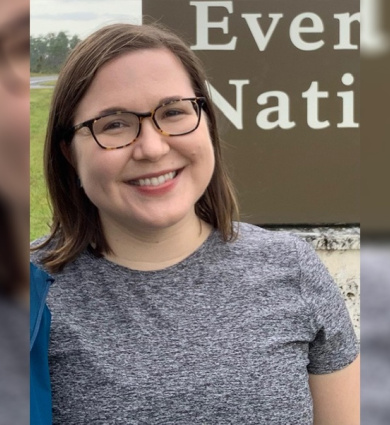

Sara Cawley (MS '15)
Courses such as Environmental Policy and Negotiation, with Professor Steve Yaffee, taught me how to investigate and evaluate complicated policy questions with various stakeholder groups, while my master’s project gave me hands-on learning experience in terms of working with people from diverse backgrounds and conducting my own research.”
What did it mean to you to be named a Wyss Scholar? What were some of the activities and opportunities that held the greatest impact for you?
It was a great honor to be named a Wyss Scholar, given the competitive applicant pool and the thorough interview process. And incredibly exciting, because this was the first fellowship that seemed exactly in line with where my academic and professional interests were aligning, and I was hopeful about what opportunities it might provide. Not only did the scholarship help to defray a significant portion of my tuition costs, but Wyss also funded my 2014 summer internship with the Sonoran Institute in Bozeman, Montana, and brought all of the current scholars together for a retreat where we met with conservationists working across the Crown of the Continent ecosystem. In short, the connections I’ve made through Wyss, as well as the provided travel and learning opportunities, were a major asset to my professional and personal development.
Can you tell us about your SEAS experience? How did it help you advance in the conservation field?
What first drew me to SEAS was the strong sense of community. Interacting with/learning from my peers is what I remember most fondly (in addition to tailgating, Soul Club, Sustain-A-Ball, and Campfire, if I’m being honest). Courses such as Environmental Policy and Negotiation, with Professors Steve Yaffee and Julia Wondolleck, taught me how to investigate and evaluate complicated policy questions with various stakeholder groups. My master’s project gave me hands-on learning experience in terms of working with people from diverse backgrounds and conducting my own research. Being able to take courses at other schools, too, like Natural Resource Law and Water Law, was both a great primer for my future work and solidified my decision not to become a lawyer.
What kind of changes have you observed in land conservation in the U.S. over the course of your career?
At the federal policy level, everything has become increasingly politicized and polarized, even things that shouldn’t be—like companies paying to clean up their pollution on public lands and waters, rather than taxpayers. This is a major hurdle, and is certainly causing extensive delay and obstruction to pass just about any meaningful legislation at the federal level. I would be lying if I said that there aren’t days where I feel frustrated and discouraged. But the conservation community is made up of diverse, passionate and smart people that give me hope. We’ll keep working to get things done because we have to, and because the alternative is to go backwards.

